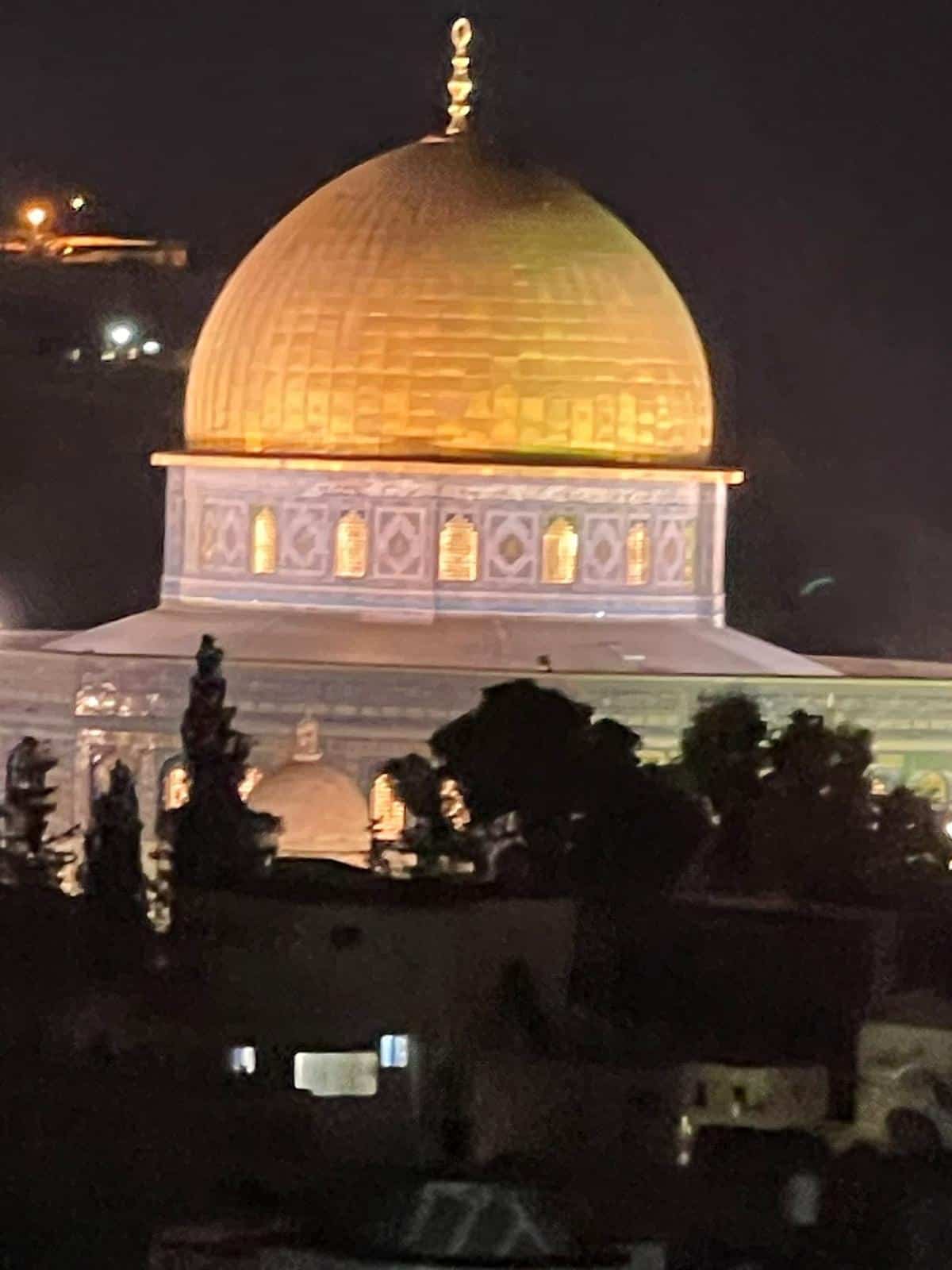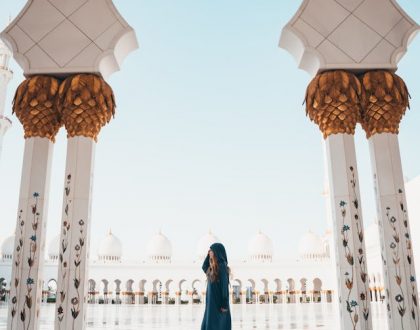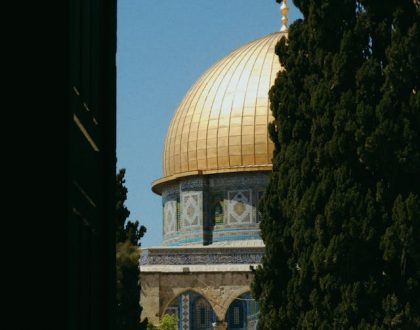Reciting the Dua al Qunut in times of calamity

What is the dua al qunut?
The dua al qunut is a supplication made standing. It is recited during Fajr prayer in the Shafi madhab, and during the witr prayer in the Hanafi method.
In addition, it can be prayed if a calamity befalls the Ummah, particularly when atrocities are committed against Muslims or disasters.
The Prophet (peace be upon him) made the dua qunut in every salah for one month, as stated by Ibn Abbas, to ask Allah to protect the innocent.
Therefore, in the last rakah of every salah (fard and sunnah), when you stand up from ruku, you can recite the dua after saying ‘Sami allahu liman hamidah Rabbana wa lakal hamd’ and going into sujud.
Together we can appeal to Allah to protect the ummah from any major calamity.
The Hanafi method
Praying the qunut is wajib in the Hanafi school. Pray your first two rakahs as normal, then after sitting, stand up for the third rakah, recite Surat al Fatiha, and a short surah (preferably Surat al Ikhlas) and then do not bend down in ruku, instead say Allahu Akbar, and then recite the dua al qunut with your hands folded. Hanafis do not raise their hands in Witr qunut.
The Shafi method
The Shafi school do not recite dua al qunut in their witr prayer. They pray the qunut in the second rakah of fajr.
With the exception of the last 15 days of Ramadan. During these days, the qunut is recited AFTER the ruku. After the ruku, stand up again and say, ‘samiallahu liman hamidah’ and then raise your hands to the level of your shoulders and make the dua al qunut.
Which dua can be recited as the dua al qunut?
There are different dua al qunut. For instance:
اللَّهُمَّ اهْدِنِي فِيمَنْ هَدَيْتَ وَعَافِنِي فِيمَنْ عَافَيْتَ وَتَوَلَّنِي فِيمَنْ تَوَلَّيْتَ وَبَارِكْ لِي فِيمَا أَعْطَيْتَ وَقِنِي شَرَّ مَا قَضَيْتَ إِنَّكَ تَقْضِي وَلاَ يُقْضَى عَلَيْكَ وَإِنَّهُ لاَ يَذِلُّ مَنْ وَالَيْتَ وَلاَ يَعِزُّ مَنْ عَادَيْتَ تَبَارَكْتَ رَبَّنَا وَتَعَالَيْتَ
O Allah, guide me among those whom You have guided, pardon me among those whom You have pardoned, turn to me in friendship among those on whom You have turned in friendship, and bless me in what You have bestowed, and save me from the evil of what You have decreed. For verily You decree and none can influence You; and he is not humiliated whom You have befriended, nor is he honoured who is Your enemy. Blessed are You, O Lord, and Exalted. All praise is upon You for what You decide. We seek Your forgiveness, and we repent unto You. Peace and blessings are upon our Prophet Muhammad and upon his family and all his Companions.
Allah hummah dinii fiiman hadait.Wa’aa finii fiiman ‘aafait. Watawallanii fiiman tawal-laiit. Wabaariklii fiimaa a’tait. Waqinii sharramaa qadhait.Fainnaka taqdhii walaa yuqdha ‘alaik.Wainnahu laayadhillu man walait.Walaa ya’izzu man ‘aadait. Tabaa rakta rabbanaa wata’aalait. Falakalhamdu ‘alaa maaqadhait. Astaghfiruka wa’atuubu ilaik. Wasallallahu ‘ala Sayyidina Muhammadin nabiyyil ummiyyi. Wa’alaa aalihi washahbihi Wasallam.
اَللَّهُمَّ إنا نَسْتَعِينُكَ وَنَسْتَغْفِرُكَ وَنُؤْمِنُ بِكَ وَنَتَوَكَّلُ عَلَيْكَ وَنُثْنِئْ عَلَيْكَ الخَيْرَ وَنَشْكُرُكَ وَلَا نَكْفُرُكَ وَنَخْلَعُ وَنَتْرُكُ مَنْ يَفْجُرُكَ اَللَّهُمَّ إِيَّاكَ نَعْبُدُ وَلَكَ نُصَلِّئ وَنَسْجُدُ وَإِلَيْكَ نَسْعى وَنَحْفِدُ وَنَرْجُو رَحْمَتَكَ وَنَخْشى عَذَابَكَ إِنَّ عَذَابَكَ الجِدَّ بِالكُفَّارِ مُلْحَقٌ
O Allah! We implore You for help and beg forgiveness of You and believe in You and rely on You and extol You and we are thankful to You and are not ungrateful to You and we alienate and forsake those who disobey You. O Allah! You alone do we worship and for You do we pray and prostrate and we betake to please You and present ourselves for the service in Your cause and we hope for Your mercy and fear Your chastisement.
Allah humma inna nastainuka wa nastaghfiruka wa nu’minu bika wa natawakkalu alaika wa nuthni alaikal khair, wa nashkuruka wala nakfuruka wa nakhlau wa natruku mai yafjuruka, Allah humma iyyaka na’budu wa laka nusalli wa nasjud; wa ilaika nas’aa wa nahfid wa narju rahmataka wa nakhshaa azaabaka; inna azaabaka ljidda bil kuffari mulhik
Imam al-Nawawi said that if calamity befalls a Muslim such as fear, famine, epidemic, (attack/infestation) of grasshopper and others, we can recite qunut in all the prayers.
The Prophet (peace be upon him) would recite the Qunoot in salah when grave events took place, such as when 80 of those who had memorised the Quran were killed, so we too should do qunut in ever salah when faced with similar situations.
Be active
In addition to making dua we should also be active in seeking solutions to our problems.
If we see injustice, as a minimum we can voice our opinions clearly and politely, but firmly – we can write to our MP. There are templates that can be downloaded which make this easy and simple. The Muslim Council of Britain website is a good source for this. In addition we can write to the media.
The next thing we can do is join peaceful demonstrations. We should be careful to stay within the remits of the law when demonstrating, otherwise the demonstrations will backfire on us. It is our right to stand with our brothers and sisters who are oppressed anywhere in the world.
In addition we can make dua from the heart with complete submissiveness as Allah only accepts the duas of those who are submissive, not hearts that are distracted.
Abu Sa`eed al-Khudree (may Allah be pleased with him) said:
عَنْ أَبِي سَعِيدٍ الْخُدْرِيّ رَضِيَ اللهُ عَنْهُ قَالَ سَمِعْت رَسُولَ اللَّهِ صلى الله عليه و سلم يَقُولُ: “مَنْ رَأَى مِنْكُمْ مُنْكَرًا فَلْيُغَيِّرْهُ بِيَدِهِ، فَإِنْ لَمْ يَسْتَطِعْ فَبِلِسَانِهِ، فَإِنْ لَمْ يَسْتَطِعْ فَبِقَلْبِهِ، وَذَلِكَ أَضْعَفُ الْإِيمَانِ”
I heard the Messenger of Allah (ﷺ) say, “Whosoever of you sees an evil, let him change it with his hand; and if he is not able to do so, then [let him change it] with his tongue; and if he is not able to do so, then with his heart — and that is the weakest of faith.” [Muslim]
This means the duty of every believer is to stand up to oppression and evil. Indeed Allah has told us that there will be a group who upholds the truth until the end of the time.
In more than 25 narrations, the Prophet (peace be upon him) reiterated this. Mu’awiyah bin Qurrah narrated that his father narrated that the Messenger of Allah (ﷺ) said there would always be group of his Ummah clinging to the truth, fighting their enemies despite all the challenges they face and the disputes around them until the Day of Judgement:
لاَ تَزَالُ طَائِفَةٌ مِنْ أُمَّتِي مَنْصُورِينَ لاَ يَضُرُّهُمْ مَنْ خَذَلَهُمْ حَتَّى تَقُومَ السَّاعَةُ ” .ابن ماجه
“A group of my Ummah will continue to prevail, and they will never be harmed by those who forsake them until the Hour begins.” [Ibn Majah]
It is our duty to stand in solidarity with our brothers and sisters in Palestine who are facing ongoing oppression and adversity. By offering our support and raising awareness about their plight, we can contribute to the global effort for justice and peace in the region.
Palestine the Islamic perspective
- Inspirational women in Islam
- The forces of Allah and the fate of the falsifiers
- Climbing the stairs: How to continue your spiritual journey post-Ramadan
- How Allah strengthens the hearts of believers
- Why should you follow up one good action with another one?
Recommended Posts

Inspirational women in Islam
May 01, 2024

The forces of Allah and the fate of the falsifiers
April 26, 2024

How Allah strengthens the hearts of believers
April 19, 2024
